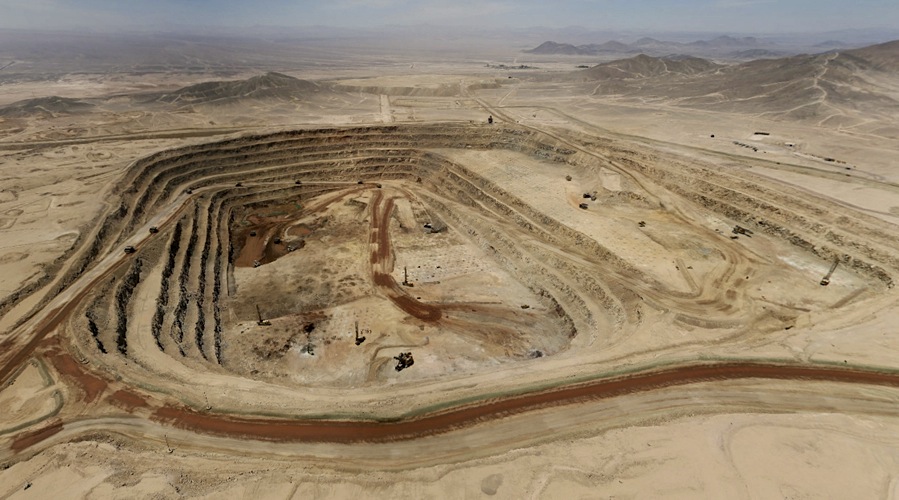KGHM, Sumitomo face fine, licence withdrawal over environmental breaches in Chile

Chile’s environmental watchdog has pressed charges against Sierra Gorda SCM, firm jointly owned by Poland’s KGHM Polska Miedz and Japan’s Sumitomo Metal Mining, saying it was found guilty of committing nine environmental infractions.
KGHM could face fines and have the licence for its Sierra Gorda mine revoked.
According to the Superintendence for the Environment (SMA), the “serious” to “mild” breaches include not implementing measures to control emissions, altering the natural habitat for native wildlife, and operating a tailings dam in an unauthorized fashion.
The regulator added the miner could face fines and have the licence for its Sierra Gorda mine — KGHM’s largest foreign asset — revoked.
Sierra Gorda SCM firm was given ten days to present a compliance plan to the SMA or 15 days to present a legal defence.
KGHM, Europe’s second-biggest copper producer, has been hit by persistently low commodity prices in the face of worries about Chinese demand.

This photo, dated March 2, 2016, shows some of the problems detected at Sierra Gorda. (Courtesy of SMA)
The fine would add pressure to KGHM, also the world’s largest silver miner, which flagged last month a record $1 billion in write-downs on key foreign assets, including the Sierra Gorda mine in Chile, due to plunging metals prices.
KGHM gained control of Sierra Gorda in 2011 when it bought Canadian rival Quadra FNX for $2.07 billion (Cdn$2.87 billion), the largest ever foreign acquisition by a Polish company. The mine launched commercial production only last year.
In January Sierra Gorda’s co-owner, Japan’s Sumitomo , said it cut its profit forecast due to the investment loss at the mine.
According to Sumitomo, Sierra Gorda produced about 85,000 tonnes of copper concentrate in 2015 and aims to reach full utilization by the end of June.
The originally story was based on a Reuters report, which claimed the fine could be of up to $29 million. SMA clarified the confusion and said maximum fine would be about US$4 million.
{{ commodity.name }}
{{ post.title }}
{{ post.date }}




3 Comments
M. Aguero
$29 Million Chilean Pesos or US$ 29 Million Fine?, Barrick´s Pascua Lama received a US$16.4 Million Fine in 2013 by this same watch dog which can only press charges , it is a court of law which finally rules whether it goes or not. I think that after a certain time you may ask yourself , did they really pay it effectively?. Because you have to understand that Chile is a “Peculiar” country where different definitions of justice are hovering around , having said that, probably we will never hear about this issue anymore.
Glen van Kerkvoort
You are right. It is unclear from the article what the currency is. A look at the appropriate sites helps a little. The document issued by SNIFA (Sistema Nacional de Informacion de Fiscalizacion Ambiental) does not indicate any amounts for a fine (http://snifa.sma.gob.cl/RegistroPublico/ProcesoSancion/VerExpediente?expediente=D-009-2016). It does however classify the various claimed infractions into categories 1. Moderate (Leve), 2. Serious (Grave) and 3. Very serious Muy Grave).
According to the SMA (Superindendencia del Medio Ambiente) The upper limits for each category are quoted in UTA’s with 1 UTA = to appx. US$800. The upper limits for each category are 1. Moderate, up to 1,000 UTA (US$800,000); 2. Serious, up to 5,000 UTA (US$4,000,000) and 3. Very Serious, up to 10,000 (US$8,000,000) (http://www.sma.gob.cl/index.php/quienes-somos/que-hacemos/sanciones). Based on that the $29 million mentioned in the article is probably US$ or maybe even CA$. After having said all that, I agree with M. Aguero, this case is not over and will probably get resolved without too much more controversy.
As regards corruption there is usually an inverse relationship between people charged and brought to justice and the actual level of corruption in a country. Note the brought to justice comment. Sometimes there are many people charged but all end up escaping justice. The more people who get caught and brought to justice, the less the actual corruption. The less people that get caught and brought to justice the greater the corruption. For example, look at Argentina. Nobody gets brought to justice for being corrupt, but the levels of corruption are very high. For the records, on a world scale the level of corruption in Chile is still pretty low.
Goldfinger
I wonder when a Codelco operation is going to be fined for the various environmental breaches that occur. It is becoming increasingly obvious that there are two sets of rules on Chile, one for the Chileno companies and operations and the other for foreigners.